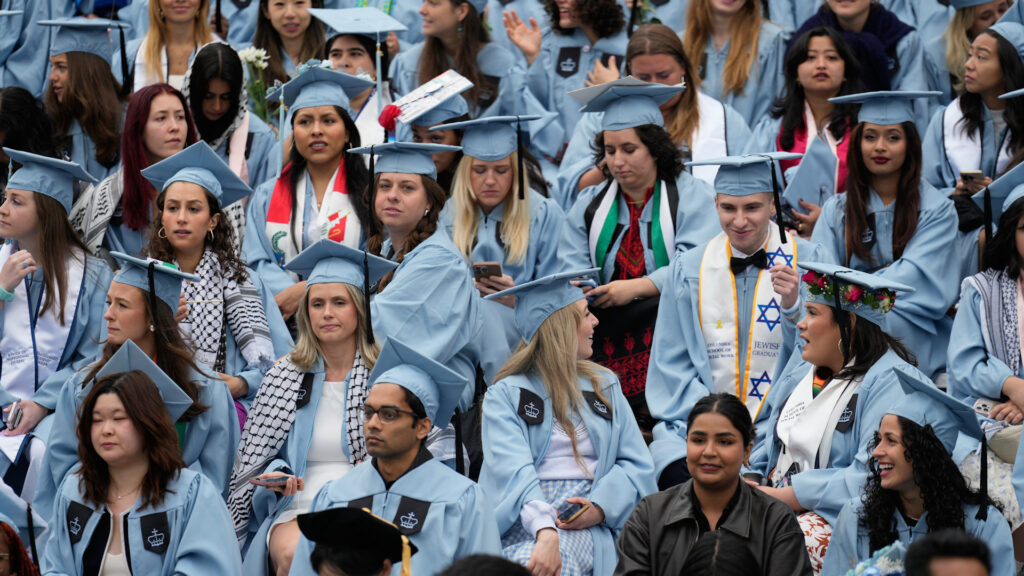The U.S. State Department has halted all new student and exchange visa interviews at embassies and consulates worldwide, first reported by Politico. The internal directive, reportedly issued Tuesday, pauses appointments for F, M and J visa categories.
This comes as the Trump administration prepares to implement expanded social media screening for international applicants.
Unbiased. Straight Facts.TM
The State Department paused all new F, M and J student visa interviews to implement expanded social media screening.

F, M and J are nonimmigrant visa categories used by foreign nationals to enter the United States for academic or exchange programs, depending on the type of study or the nature of the sponsorship.
What’s behind the policy shift?
The pause gives consular posts time to prepare for a new requirement. This includes mandatory social media vetting of all student and exchange visa applicants. Under the expanded policy, consular officers will review applicants’ public posts, shares and associations for signs of potential national security threats. The Trump administration claims the change aims to counter extremism and foreign influence.
“Effective immediately, in preparation for an expansion of required social media screening and vetting, consulate sections should not add any additional student or exchange visitor visa appointment capacity,” the cable says.
Critics say the policy unfairly targets students involved in political activism, especially those linked to pro-Palestinian protests. “Students are not a threat,” said Fanta Aw, president and CEO of NAFSA: Association of International Educators. “If anything, they’re an incredible asset to this country.”
How did China respond?
China quickly condemned the visa suspension order. Foreign Ministry spokesperson Mao Ning called on the U.S. to protect the “legitimate rights and interests” of international students. “China has consistently opposed the politicization of educational exchanges,” she said.
The freeze comes days after the administration attempted to revoke Harvard University’s ability to enroll international students. A federal judge blocked the move, which remains under legal review.
Secretary of Homeland Security Kristi Noem, in a statement about Harvard last week, said, “It is a privilege, not a right, for universities to enroll foreign students and benefit from their higher tuition payments to help pad their multibillion-dollar endowments.”
Critics argue the visa pause is part of a broader crackdown on international students that could have long-term consequences for higher education in the U.S.
Aaron Reichlin-Melnick, senior fellow at the American Immigration Council, posted on X, “If the United States stops taking foreign students, the economic impact would be catastrophic.”
How will this affect students and universities?
A U.S. official told the Associated Press the suspension is temporary and won’t affect applicants with existing visa interview appointments. Still, universities caution that delays could disrupt enrollment for summer and fall terms, especially for students from Asia, Europe and the Global South.
Higher education leaders warn that the visa freeze, along with enrollment restrictions, could cost the U.S. billions in lost revenue and academic leadership. More than one million international students contributed nearly $44 billion to the U.S. economy last year, according to NAFSA. Some foreign governments and universities are now actively courting students turned away from the U.S.
contributed to this report.


